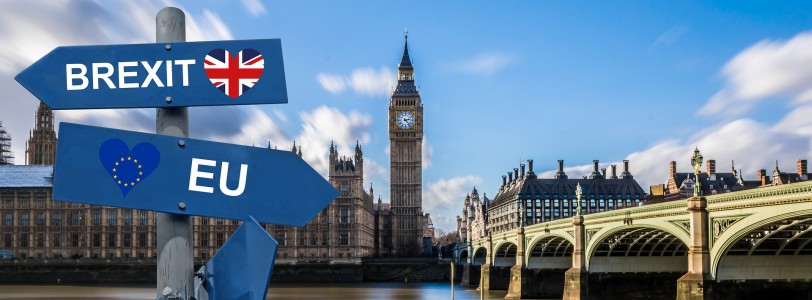Labour this week announced that they would support a second referendum if the government doesn’t get its deal through through Parliament. Immediately the Remain and Leave camps fired on all cylinders calling the move great/awful for democracy and the party is doomed/saved.
It is no secret that I supported Remain in the referendum, and have since written frequently about the issues that Brexit poses to the country. Nonetheless, I’ve always been a little bit cautious about immediately supporting a second referendum, and the outrage that Leave voters are exhibiting demonstrates why.
While I acknowledge that many will see the move as a betrayal, I disagree with the sentiment that the move in undemocratic. Here are a couple of FAQs that I hope will better outline my position.
Haven’t we already voted once?
We have yes. The original vote took place on 23 June 2016. The question was should the UK Leave or Remain in the EU. The result was 51.9% to 48.1% to leave. David Cameron resigned as a result, and Theresa May became Prime Minister on 11 July 2016, and triggered Article 50 - the official mechanism for the leaving the EU - on 29 March 2017. This gave us two years to negotiate an orderly withdrawal agreement, or risk crashing out.
Wasn’t the referendum binding?
No, the referendum wasn’t actually legally binding. This is just as well, because the courts have ruled the Leave campaign broke electoral law by overspending, and the result would have been quashed anyway. If a referendum isn’t binding, it is only advisory, meaning that Parliament is free to ignore the result, as ultimately, Parliament is sovereign.
Shouldn’t MPs do what the people want?
How many times have politicians done exactly what you want? I’m being facetious, of course, but there is an element of truth to it. We live in a representative democracy, which means politicians are elected to represent us and oversee the running of the country. By existing and participating in this democracy, you are tacitly consenting to permit Parliament to govern on your behalf.
This method of governance is most common in the democracies, as opposed to direct democracy, where every citizen has a direct influence on the outcome. This style of democracy isn’t widely used because most citizens lack the time, knowledge, or inclination to be making decisions on every political matter.
As our elected representatives, MPs are of course there to represent our views in Parliament, but they also have an obligation to represent your interests and the best interests of the country.
Isn’t a second referendum undemocratic?
This is perhaps the most contentious question as it gets right down to the heat of the debate, but I’m afraid there is nothing undemocratic about a second referendum.
People are allowed to change their mind, just like people are allowed to vote for a different MP during general elections if they are unhappy with the performance of their current one.
When the first referendum was held in 2016, the options were rudimentary, and while Remain had an obvious definition, Leave had multiple definitions and promises attached. Would we adopt a Norway style agreement? Would we continue to be part of the Single Market? What happens to EU citizens? Will there be £350m a week more to go to the NHS? How easy will it be to sign a trade agreement with the EU afterwards?
In the two years since that vote, a lot of those questions have been answered, and not in the way which was promised. There will be no more money for the NHS, a Norway style deal is not on the cards without negotiation and compromises that the current Government seem unwilling to make, and so far we have only signed six trade agreements and one of them is with the Faroe Islands - our 114th largest trading partner.
The Brexit realities (and limitations) are clear, and Parliament is seemingly deadlocked over the way forwards, so now is the time for the people to indicate the direction they want to go.
But isn’t this just a ploy to get people to vote ‘the right way’?
There will certainly be those who would see the second referendum as a way to ‘right the wrong’ of the first, but it isn’t really about that. As stated, the reality is that we are now further along the path towards Brexit, and none are looking too rosy. Parliament categorically ruled out Theresa May’s deal - the only one the EU are willing to give us considering the Government’s red lines - and no deal is being ruled out as dangerous to the economy and even lives.
A second referendum on the final decision allows the public to consent to a decision one way or the other, based on the facts of the situation. Parliament previously voted down May’s deal, but with no-deal not an option, the public should be allowed to decide whether we take the Brexit deal or remain.
If the majority of people still believe that Brexit is the best thing for the country, the results will still reflect that, and MPs will have little choice but to implement it.
What should the referendum question be?
This is another contentious question, and a lot of people will have an opinion about it. I can’t tell you what the right question is definitively, but I would personally suggest something like this:
What should Parliament vote to implement?
The Brexit Withdrawal Agreement OR
Remain in the EU
Since we know that a no-deal Brexit is never going to happen and would bring irrevocable harm to the nation, and the EU will not negotiate the withdrawal agreement that was signed off in November, we must assume that May’s Brexit deal is the best we will get. It is the best Brexit available to us, curtailing freedom of movement and allowing the UK to strike up trade agreements.
It will, however, come with significant drawbacks and will likely see us as rule takers, not makers. Ironically, remaining a member of the EU gives us the most control over the rules we would have to follow, and allows us to keep access to the 40 trade agreements already in place, and continues to permit us access to the largest market in the world.
By using the proposed question above, you are really asking the country whether you want to Leave or Remain, but now both terms are clearly defined.
Isn’t this a waste of everybody’s time and money?
Yes. But I would argue this whole Brexit debate has been a waste of time and money. The last two years have been dominated over a ‘will they, won’t they’ drama with Brexit, and the strength of the pound has dropped 11% since the vote. We have seen a number of large multinational corporations reducing investment or pulling out of the UK altogether, and our global image as a calm and stable nation has been shattered. Worse still, it has torn at the very fabric of British society and caused a divide that could take generations to heal.
All this is a result of party in-fighting, and an attempt to shift the blame for poverty increases away from domestic policy onto the EU. That is where public anger should be directed, not at each other...











Please allow people who where below the voting age for the original vote to decide thier future. Allso allow the voting age for this vote to include people who are between 16 and 18 to vote. As it is thier future and not mine, they have the main right to decide this issue.